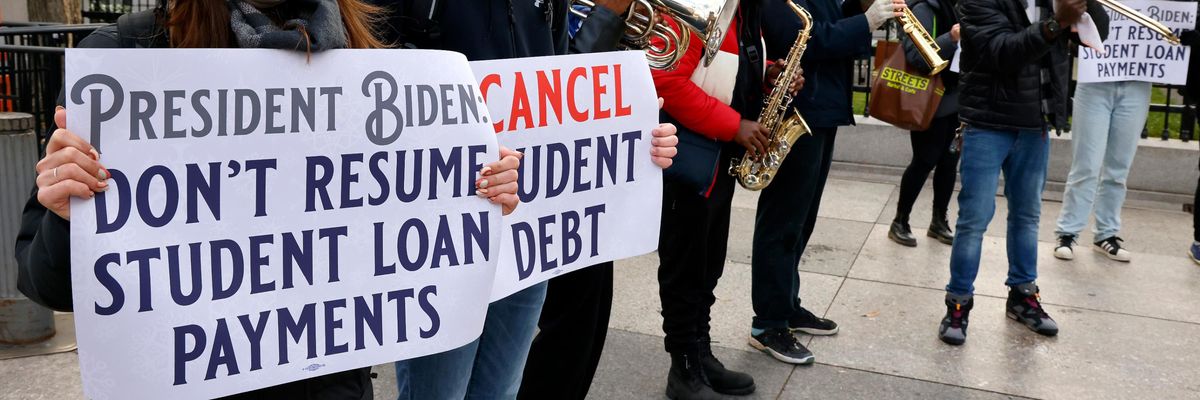Recent financial disclosures show Congressional House Speaker Mike Johnson is wrestling with hundreds of thousands in loans.
Yet, this is not news for 44 million Americans wrestling with student loan debt and their fates lie in the hands of politicians and policymakers.
This comes as President Joe Biden recently announced $5 billion in debt relief for 73,600 borrowers. Even adding in additional relief, this leaves millions burdened with ongoing repayments.
Many—including myself—struggle with loans due to high-interest rates. This is often because students must use their parents’ income and finances to determine their interest rates even when their parents are not contributing to the costs associated with their child attending college.
Shortly after the pause on federal student loan repayments was lifted post-pandemic, many people began to feel the pressure.
Even for adults paying back their student loans, the interest rates of less than 4% remain regardless of the student's own financial history. This differentially impacts students who come from families living in poverty or with poor economic histories, and compounds generational poverty as they continue to bear the burden of those before them.
While some parents are able to contribute to the cost of their child’s higher education, others resort to taking out loans to help finance their child’s education, such as through parent PLUS loans.
Those who take out parent PLUS loans are still met with high-interest rates. This is particularly true for Black families who often turn to parent PLUS loans as a last resort because they have fewer financial resources and opportunities due to structural inequities.
Because the cost of attending college continues to increase across the U.S., the amount of student loans being taken out in order to afford them is also increasing. According to the study, average tuition and fees were higher in academic year 2021–22 than in 2010–11 for first-time, full-time undergraduate students at public and private nonprofit four-year institutions. Average tuition fees in 2021-22 were $9,700 for public institutions, six percent higher than in 2010-11. Tuitions were $38,800 for private nonprofit institutions, which was 14 percent higher than $34,000 in 2010–11.
With more students taking out loans, the wealth gap is increasing. A 2023 Pew Research Center study shows wealth is increasing for wealthy Americans while debt is increasing for everyday Americans, especially those from minoritized backgrounds.
Research shows the widening wealth gap has major implications for the future of student loan borrowers. Having excess debt can hinder a person’s ability to purchase a home.
To be sure, many would argue that forgiving student loans would not address the root cause of the high cost of higher education in the United States, and some do not support the idea of paying off other people's debts.
In addition to student loan forgiveness, policymakers, advocates, community leaders, and higher education leaders can work to eradicate the need for student loans in the United States by reducing the cost of higher education, increasing wages and job opportunities for college graduates, and creating tax and other incentives for people who have previously paid off their student loans.
There is no debate that education is a pillar of American society, providing the foundation of a just society where everyone can thrive, reach their maximum potential, and lead fulfilling lives.
This country’s policies adversely impact those who can contribute to the nation’s economy. It is urgent to stop imposing unmanageable loans on those who choose education and to encourage those to seek higher education without fear of a significant debt burden, and one that perpetuates disparity.
It is time to bring the gavel down in favor of student loan debt forgiveness.

